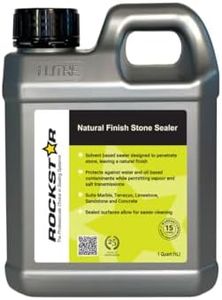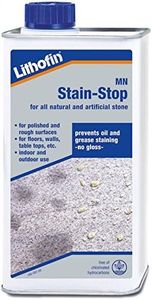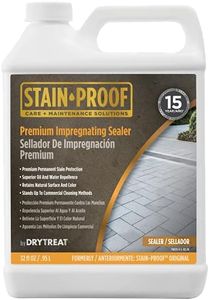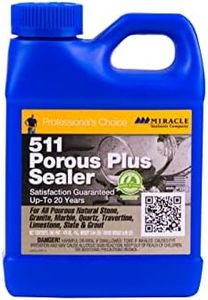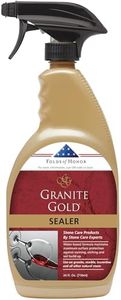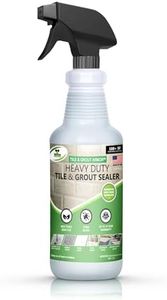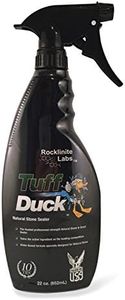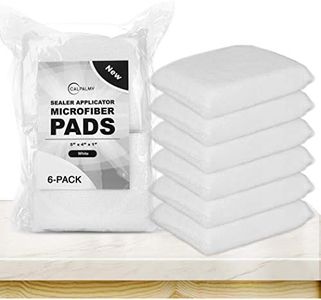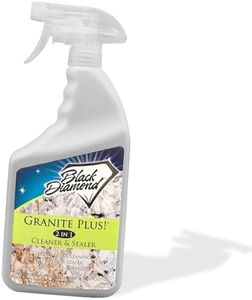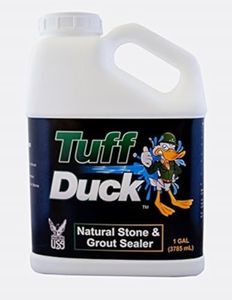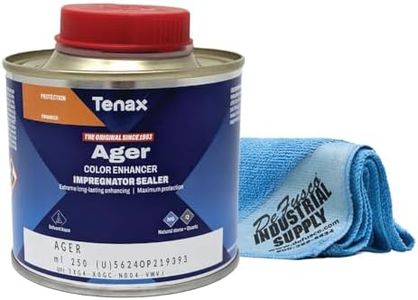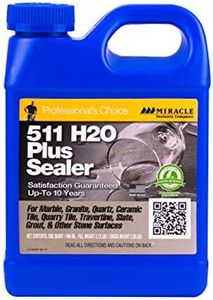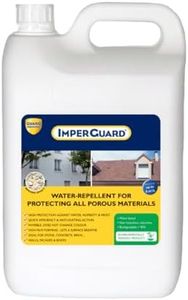We Use CookiesWe use cookies to enhance the security, performance,
functionality and for analytical and promotional activities. By continuing to browse this site you
are agreeing to our privacy policy
10 Best Marble Tile Sealer
From leading brands and best sellers available on the web.By clicking on a link to a third party's website, log data is shared with that third party.
Buying Guide for the Best Marble Tile Sealer
Choosing the right marble tile sealer is important to both protect your investment and keep your marble looking beautiful for years to come. Marble is naturally porous, which means it tends to absorb liquids and can be stained or etched by spills and everyday use. The right sealer serves as a protective barrier to prevent staining, water absorption, and other forms of damage. Picking the best product for your needs depends on understanding the type of marble you have, how heavily the area will be used, and the appearance you want to maintain.Sealer TypeSealants for marble tiles come mainly in two types: penetrating (impregnating) sealers and topical (surface) sealers. Penetrating sealers soak into the marble and repel liquids from within, which is essential for high-traffic and wet areas because they don't change the marble's appearance. Topical sealers, on the other hand, create a surface coating that can add shine or a matte finish, but may wear down in busy areas and require more frequent reapplication. Choose a penetrating sealer for everyday durability and less maintenance, or a topical sealer if you want to alter the look of your marble but are prepared for reapplication as needed.
Finish (Gloss Level)Marble sealers are available in different finishes, ranging from natural matte to high gloss. A matte or natural finish maintains the original look of the marble, which some people prefer for a more subtle, classic appearance. Glossy finishes can enhance the color and veining of marble, making it pop, but may also highlight scratches or imperfections over time. Think about your design goals and how much maintenance and touch-up you're willing to do when choosing the finish.
Water and Oil ResistanceNot all sealers offer the same level of protection against water- and oil-based stains. Some are optimized just for water resistance, which may be enough for bathrooms but not kitchens, where cooking oils and spills are more common. For kitchen countertops or floor tiles near entryways, a sealer with both water and oil resistance is best. Always read the product label to make sure it meets your needs, especially if the area will see frequent use or potential for spills.
Durability (Lifespan)Durability refers to how long the sealer will last before it needs to be reapplied. Longer-lasting sealers can protect your marble for several years, making them more convenient for areas where frequent reapplication would be difficult or disruptive. Shorter lifespan sealers may be suitable for low-traffic or decorative areas. Think about how often the area will be cleaned, walked on, or exposed to moisture when considering how long you want the sealer to last.
Application MethodMarble sealers can be applied in several ways: with a brush, roller, sponge, mop, or spray. Some formulas are easier and less messy to use, while others might require more careful application or longer drying times. For large surfaces or for those new to sealing marble, products that are easy to apply and clean up are usually the best choice. If you're sealing a small or intricate area, you may prefer a product that allows for precise application.
BreathabilityBreathability means that the sealer allows moisture vapor within the marble to escape, preventing trapped moisture that could cause damage or promote mold and mildew. Some sealers are more breathable than others, and this is especially important for bathrooms, kitchens, and outdoor areas. If your marble tile is installed in a place prone to humidity or wetness, opt for a sealer known for good breathability.

